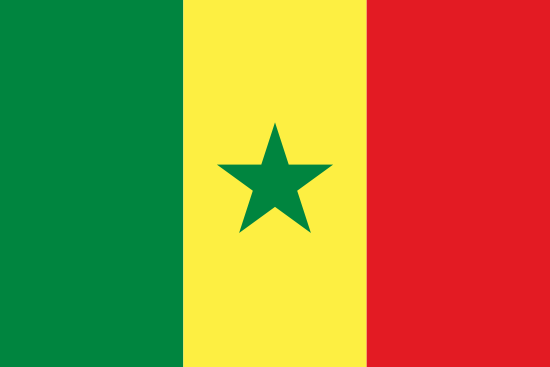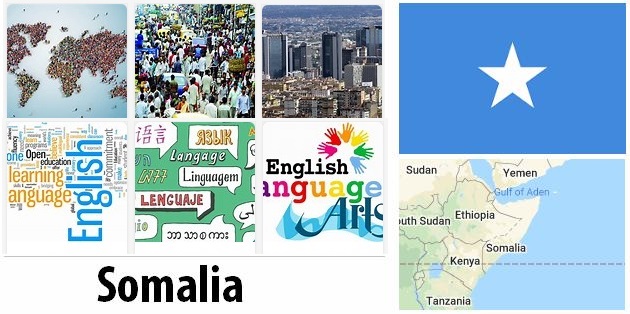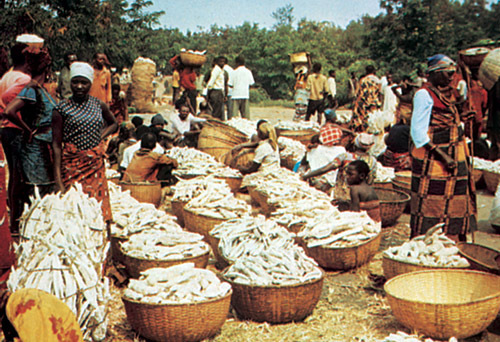Memo to a Tourist in Cape Verde
LOCAL LAWS AND CUSTOMS
There are no special codes of conduct in Cape Verde.
The population of the country is represented by mulattos of Portuguese-African origin (about 70%), some peoples of Africa (about 28%) and Europeans (mainly Portuguese).
Local residents are different from the population of continental Africa. They are characterized by a European lifestyle, they are law-abiding, a high level of culture and education. Cape Verdians are characterized by a friendly attitude towards foreigners. If necessary, they will provide assistance, they will be happy to provide information about the country.
The official language is Portuguese. At the household level, the Creole language (Creole), which has developed on the basis of African dialects and the Old Portuguese language, is widespread. Many can explain themselves in English/French.
More than 90% of the population professes Catholicism and adheres to Christian values.
Cape Verdians prefer a leisurely, measured way of life. They are not aggressive by nature.
The behavior of migrants from the countries of continental Africa (Senegal, Nigeria) differs from the behavior of local residents. They can beg, obsessively offer tourists services or goods, including those prohibited for circulation. It is recommended to avoid contact with them.
In Cape Verde, respect for the environment is encouraged. A special place is occupied by sea turtles. The legislation of the country provides for liability up to criminal liability for the storage, transportation, sale of meat, shell of sea turtles and their eggs.
SECURITY QUESTIONS
There are no terrorist threats in Cape Verde. The tourist areas (Sal Island, Boavista Island) are characterized by a calm atmosphere. Nevertheless, petty thefts and robberies are possible at night in areas remote from the center. In large cities (Praia, Mindelo) the crime rate is above the national average. It is not recommended to openly demonstrate the presence of a large amount of money and valuables, to leave things on the beach unattended. Documents and large amounts of money are recommended to be left in the hotel safe. In Cape Verde, there are no restrictions on visiting certain areas of the country.
SHOPS AND SOUVENIRS
Grocery and department stores are open on weekdays and Saturdays from 8:00 to 18:00, supermarkets – until 21:00. On Sunday, most shops are closed, some shops are open until 13:00.
The use of credit cards is quite common, and ATMs are installed in cities. There is no tax free practice. There are no public toilets on the streets, but there are toilets in restaurants and shops. Traditional souvenir from about. Fogo – products made from the lava of the Fogo volcano. Shops selling such products are located throughout the island, most in Cha das Caldeiras. In addition, excellent coffee is brought here.
HEALTH
There are no serious health hazards in Cape Verde. The country is not characterized by typical African diseases, only isolated cases of the disease are known. Vaccination is not required to enter the country.
The sun’s rays pose a certain danger. The best time to relax on the beach is before 10:00 and after 16:00.
High waves are possible on some beaches. Tourists are usually warned of such a danger with a red flag. Long swims should also be avoided due to the current.
Medical care in the country is at the proper level, however, there is a lack of specialist doctors in some areas of medicine and diagnostic medical equipment.
Purchasing a health insurance policy is optional.
There is urgent medical care for adults and children. There are duty pharmacies in the country.
Urgent veterinary care is not provided.
Recommendations of the doctor of the Embassy of the Russian Federation in Cape Verde
According to a2zgov, if you have planned a trip or you have a business trip to the Republic of Cape Verde. It will be of interest to you that it is no coincidence that the health indicators of the inhabitants of Cape Verde are significantly higher than the average for the African continent. Because, unlike all other African countries, Cape Verde is located at a fairly remote distance from the mainland. The absence of severe viral diseases and favorable climatic conditions attract a large number of tourists.
When entering the country, certificates of vaccinations or vaccines are NOT required.
However, it must be taken into account that in the Republic of Cape Verde, as in many tropical countries, although to a lesser extent, there are certain risks of viral, parasitic and infectious diseases. Therefore, it must be remembered that when traveling, you are in unusual conditions for you to eat, rest, climate, which creates an increased risk of infection and requires personal hygiene.
For prevention purposes, it is recommended:
- Do not drink water from open sources. Tap water must be boiled. For drinking, it is recommended to use purchased water in plastic bottles. It is not advisable to use ice made in bars from raw water, because pathogens can remain in it.
- Fish and other seafood should not be eaten raw, as there is a possibility of infection with helminths or poisoning with toxins.
- Use raw, dairy products with caution because of the danger of brucellosis, salmonellosis and other infections.
- Wash your hands often, especially after returning home from the street, visiting markets and shops, before eating.
- Fruits and vegetables should be thoroughly washed in running water before eating.
You should always remember the dangers of excessive solar radiation . Ultraviolet irradiation in high doses causes irreversible changes in skin cells, greatly increasing the risk of cancer. Remember that prolonged exposure to the sun is harmful to the body. Excessive tanning is inevitable burns that affect the immunity of skin cells.
Recommended: refrain from prolonged exposure to the sun. Do not be on the beach from 12:00 to 15:00, since it is during these hours that the maximum solar activity occurs. To protect your eyes from ultraviolet radiation, use glasses with well-tinted lenses. Wear clothes made from light natural materials. Use hats and sunscreen.
When you travel, you can pack a small first aid kit:
Medicines for diarrhea.
Antiallergic agents.
Repellents (drugs that repel insects) in the form of ointments and aerosols.
It is also necessary to take into account chronic diseases that can worsen during the trip. Therefore, if you are taking medication, take them with you in the required amount.
If you suddenly need a drug, before going to the pharmacy, you can check (this can be done using the Internet) its international name. Since in Cape Verde pharmacies, few people know that metamizole is called analgin in Russia. Therefore, by naming the international name of the drug, the search will be significantly accelerated.
Remember: in case of any ailment, you should immediately seek medical advice. Timely diagnosis will help to avoid possible complications
Good to know: The cost of traveling around the city by public transport is 0.4 euros, by taxi about 2 euros.
The cost of lunch in a mid-range restaurant will be approximately 15-20 Euro per person. The cost of living in a middle-class hotel room will be 60-70 euros per day.
Grocery and manufactured goods stores are open on weekdays and Saturdays from 8:00 to 18:00, supermarkets – until 21:00. On Sunday, most shops are closed, some shops are open until 13:00.
There are two mobile phone companies in Cape Verde, SV Movel and Unitel T+. 3G and 4G function. To purchase a SIM card, you must present your passport. There are few pay phones, there are at airports and post offices. The use of credit cards is quite common, and ATMs are installed in cities. There is no tax free practice. Electric voltage in the network – 220 watts. There are no public toilets on the streets, but there are toilets in restaurants and shops.



